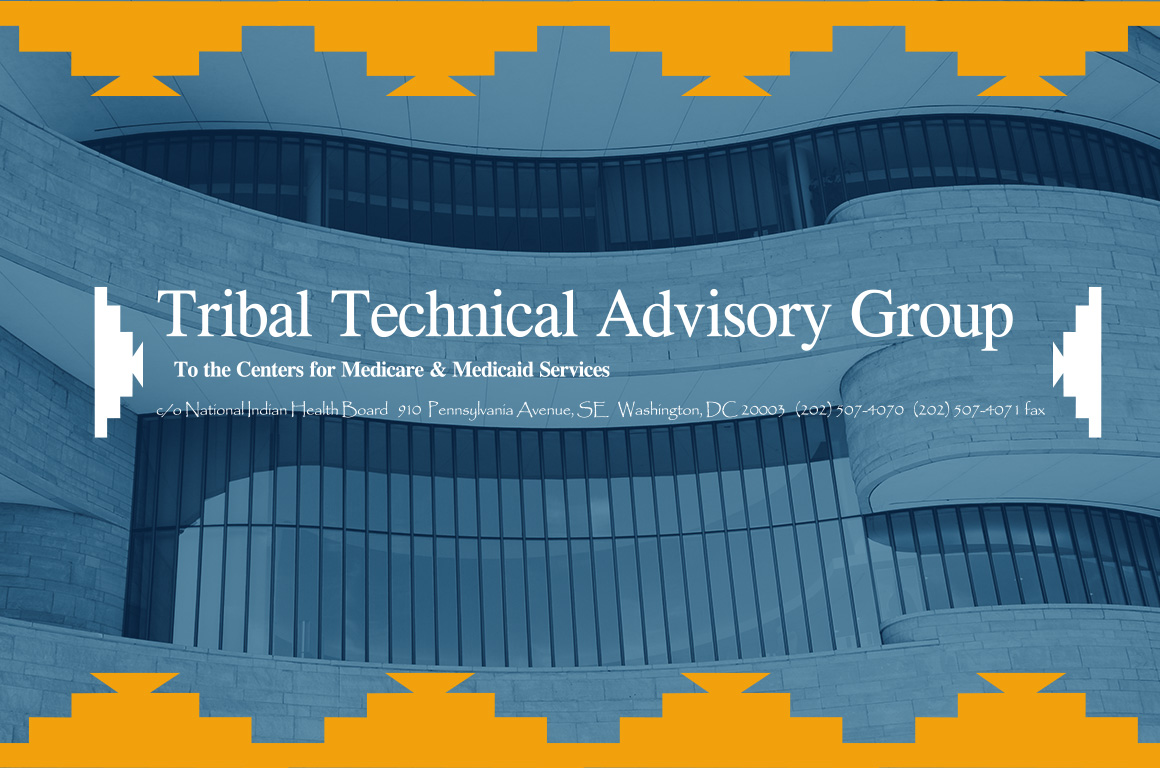Overview
In 2003, the Centers for Medicare & Medicaid Services (CMS) established the Tribal Technical Advisory Group (TTAG). TTAG provides expert technical advice and assistance on programmatic issues affecting the delivery of health care to American Indians and Alaska Natives (AI/AN) served through Medicare, Medicaid, and state Children’s Health Insurance Programs (CHIP). There are 17 voting positions comprised of an elected tribal leader and or an appointed representative and alternate from each of the 12 geographic areas of the Indian Health Service delivery system. In addition, there is one representative and alternate from each national Indian organization headquartered in Washington, D.C. including the National Indian Health Board, National Congress of American Indians, and Tribal Self-Governance Advisory Group. The two positions added in 2009, permit a representative and alternate from the National Council on Urban Indian Health and a representative and alternate from IHS to become TTAG members.
Interaction by CMS with TTAG does not replace the tribal-consultation process. Rather, TTAG works with CMS to make consultation more effective by considering the views and policy ideas of a variety of tribal representatives and organizations, in addition to better collaborating with organizations and government entities in the AI/AN health arena.
TTAG is the vehicle for acquiring a broad range of tribal views, determining the impact of CMS programs within the AI/AN health system and population, developing innovative approaches to deliver health care, and assisting with effective tribal consultation. TTAG has subcommittees each providing relevant research, expertise, and tribal input to ensure TTAG is informed and knowledgeable of the complicated issues it must address.
As a contractor for CMS, KAI provides necessary logistical support services for TTAG meetings. These services include planning and arranging meeting spaces, securing audio-visual equipment rentals, and preparing materials in a tabbed binder for TTAG’s three in-person meetings, and providing meeting support and notetaking services for approximately seven conference calls and up to 75 subcommittee conference calls per year. KAI provides written transcripts or recordings and written summaries for each in-person meeting and conference call.
Challenges
One challenge to the TTAG contract was having to make an extremely fast transition from in-person to virtual meetings during the COVID-19 pandemic. Policy shifts have also proved challenging, particularly the National Museum of the American Indian’s shift in how they provided audiovisual equipment.
Solution
KAI provides necessary support services for TTAG’s in-person meetings and conference calls. KAI’s pre-meeting support services included obtaining agenda input from committee members via SurveyMonkey; creating meeting materials, including table tents, poster-sized direction signs, meeting binders, and binder covers; negotiating an all-inclusive meeting-room contract, arranging meeting set-up, and confirming times with the venue staff; and providing travel support for all 16 TTAG personnel to attend the three yearly in-person meetings. KAI’s on-site meeting support has included coordinating the meeting facility and on-site logistics, in addition to providing dedicated staff members for both notetaking and logistical support. After each meeting, KAI’s project manager processes any necessary reimbursement forms and provides the contracting officer with a meeting summary and transcripts.
Results
KAI conducted many meetings both in person and over Zoom, supporting a few hundred participants including numerous speakers, TTAG representatives, alternates, and technical advisors.
